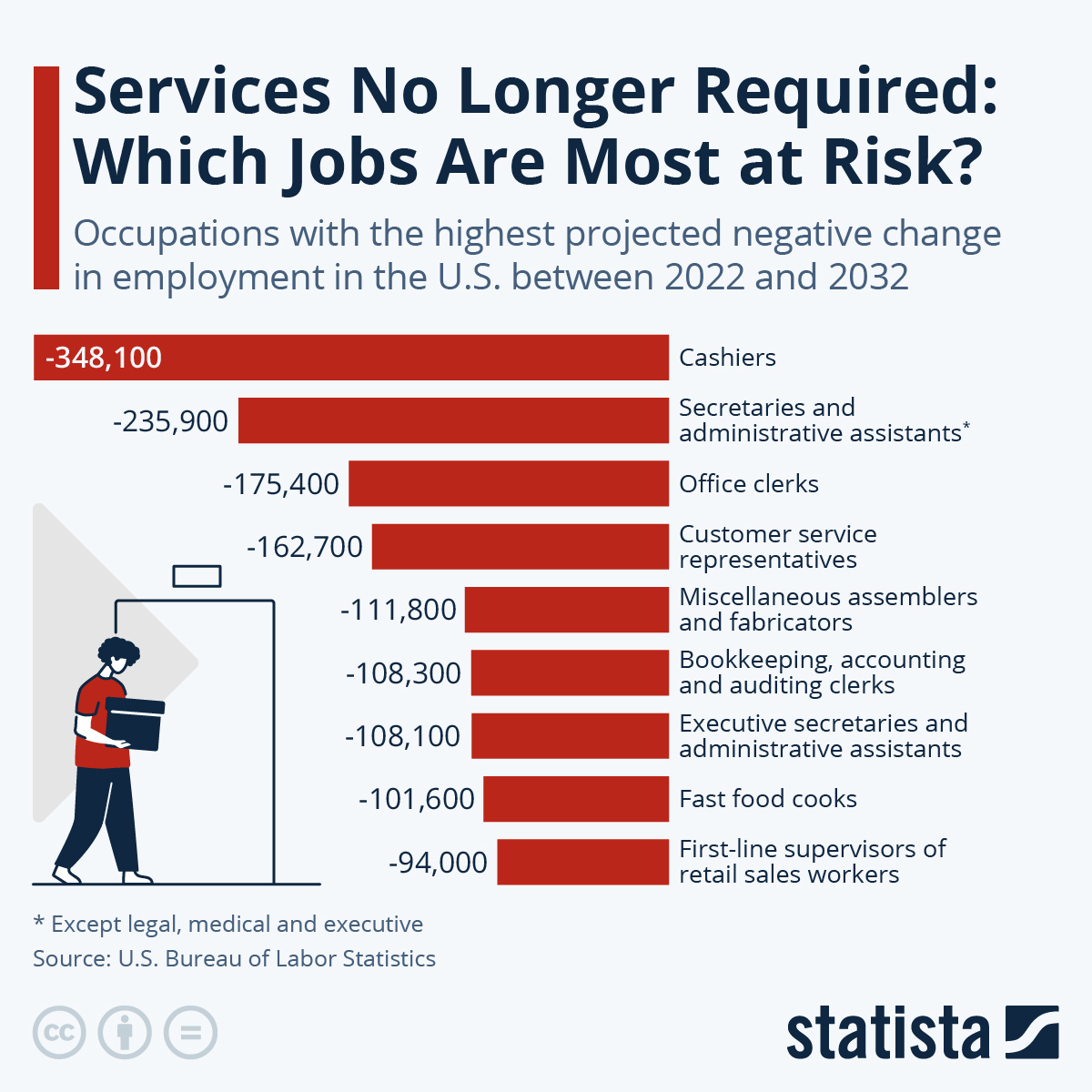No Help Wanted: Which Jobs Are Most At Risk?
Long before the emergence of artificial intelligence, which many fear will make some jobs obsolete, technological advancements have altered the way people work, making some occupations disappear, while others emerged.
Did you know, for example, that people used to work as living alarm clocks before actual alarm clocks became a thing? “Knocker uppers”, as they were called, would walk around in industrial England, wielding a long stick with which they’d tap on workers’ doors to wake them in time for their shifts.
There also used to be “computers” long before the arrival of personal computers. They were persons performing mathematical calculations, a service that is no longer required today.
So which jobs might be next? Each year, the U.S. Bureau of Labor Statistics publishes its Occupational Employment Projections - a report that's looking at the U.S. labor market as a whole for the next 10 years, projecting changes in employment by occupation and revealing which jobs are most at risk from automation or other technological and societal shifts.
As Statista's Felix Richter shows in the chart below, based off its latest edition covering the 2024-2034 period, the BLS identified four occupational groups that are projected to lose jobs over the next decade: office and administrative support occupations, production occupations, sales and related occupations as well as occupations in farming, fishing and forestry.
You will find more infographics at Statista
As the chart shows, cashiers, who are at risk of being replaced by self-checkout, are projected to see the biggest drop in employment over the next decade with 313,600 fewer jobs in 2034 than in 2024.
Other jobs high on the list are office clerks and customer service representatives, the latter in particular vulnerable to the rise of AI-powered customer service chatbots.
When looking at relative employment changes, word processors and typists (-36 percent), roof bolters (-34 percent) and telephone operators (-27 percent) are the most quickly disappearing jobs, neither of which move the needle in absolute numbers, however, due to them being relatively rare occupations to begin with.
Loading recommendations...
